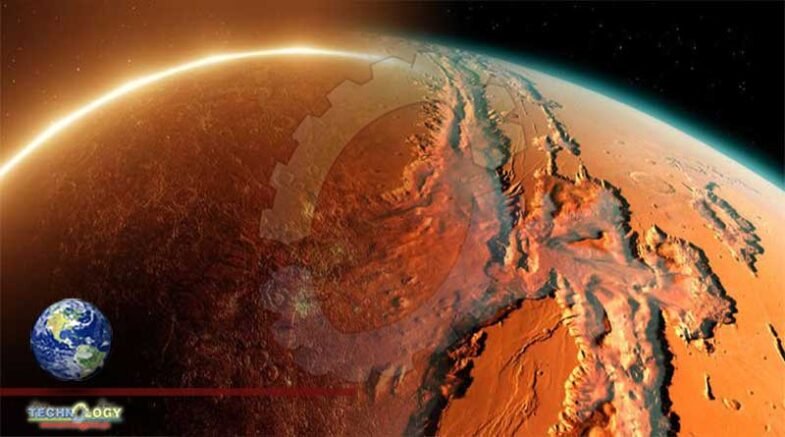Nathalie Cabrol suggested a microbial biosphere could be on Mars. NASA sent its Perseverance rover to test for the signatures of biology.

Professor Nathalie Cabrol, director of the Carl Sagan Centre for Research which is part of the Search for Extraterrestrial Intelligence (SETI) Institute, suggested in an article a microbial biosphere could be on the planet. NASA sent its Perseverance rover to the planet to explore a crater with instruments designed to test for the signatures of biology.
In a paper published by Nature Astronomy, Prof Cabrol said microbes may have moved underground over the last four billion years.
The expert based her studies on “Mars analogues”, which are cold and inhospitable environments on Earth which mimic the conditions of the planet, such as Antarctica.
Her research suggests landscapes which appear to be void of habitation could support life – and that extreme environmental factors such as a thin atmosphere, UV radiation, salinity, aridity and temperature fluctuations help create the conditions for life.
The interaction of these factors “unlocks life’s distribution and abundance in those landscapes”, according to Prof Cabrol.
While “that does not necessarily make it easier to find” evidence, Prof Cabrol said observing these factors could help in the search for life on Mars.
She then suggested Mars could have hosted rivers, oceans, wind and dust storms around 3.6 billion years ago.
She said: “Dispersal mechanisms still exist today, and they connect the deep interior to the subsurface.”
However, Prof Cabrol warns there is a “deadline” for collecting samples from Mars as human explorations start being planned.
NASA’s Perseverance rover has been on Mars for over a month, and has not yet found signs of life.
However, team scientists have determined that several of the rocks are chemically similar to volcanic rocks on Earth, and that wind and water have eroded some of them.
Kenneth Farley, geochemist at the California Institute of Technology in Pasadena and the mission’s project scientist, added: “Everything is going great so far.”
During its mission, Perseverance will collect approximately 30 tubes full of Martian rock and soil, laying them down on the Martian surface for a future mission to retrieve and fly back to Earth for scientists to analyse.
Originally published at EXPRESS
